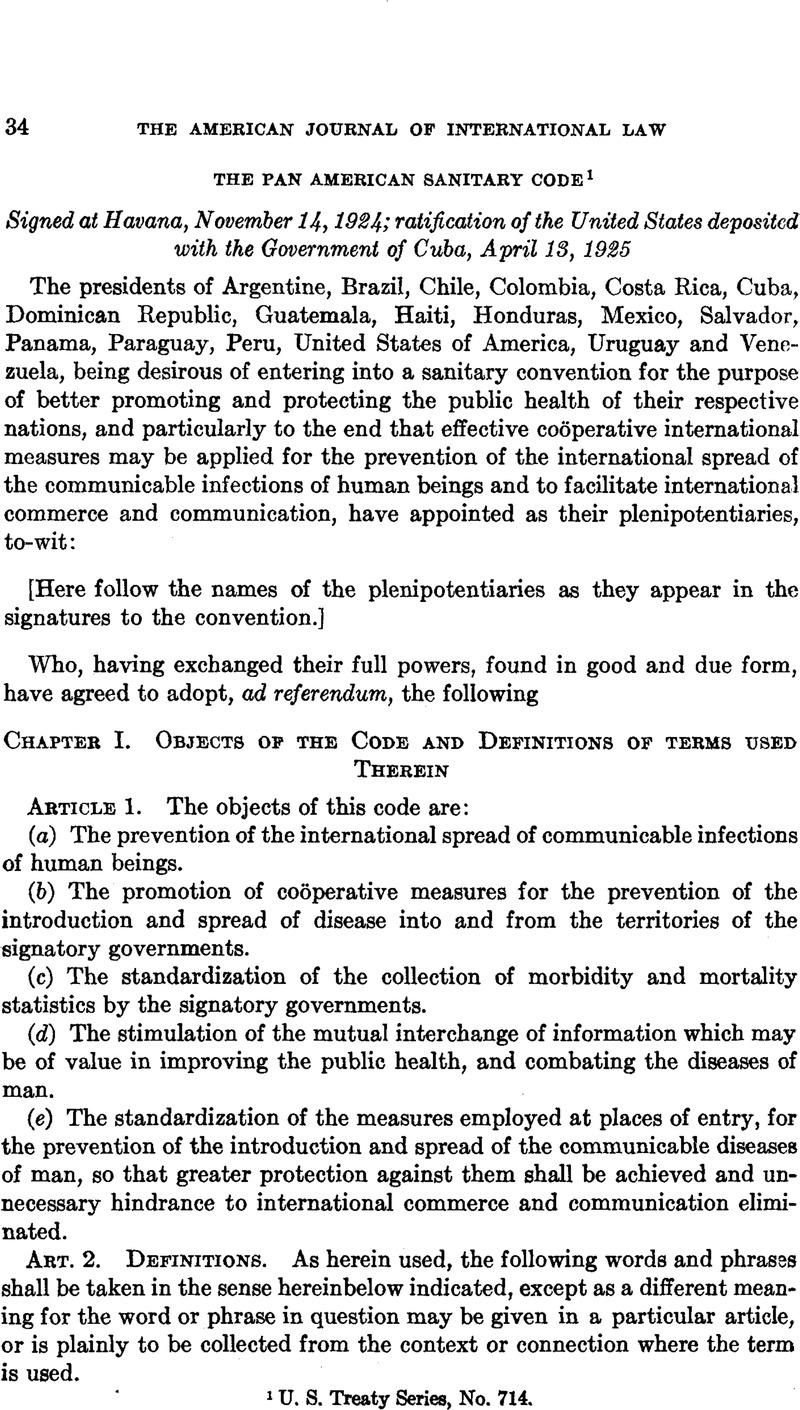No CrossRef data available.

U. S. Treaty Series, No. 714.
1 Explanatory Footnote.-The nature of the goods or merchandise likely to harbor rats (plague suspicious cargo), shall, for purpose of this section, be deemed to be the following, namely; rice or other grain (exclusive of flour); oilcake in sacks, beans in mats or sacks; goods packed in crates with straw or similar packing material; matting in bundles; dried vegetables in baskets or cases; dried and salted fish; peanuts in sacks; dry ginger; curios, etc., in fragile cases, copra, loose hemp in bundles; coiled rope in sacking kapok, maize in bags, sea grass in bales; tiles, large pipes and similar articles, and bamboo poles in bundles.
1 See Annex, p. 47, infra.
1 The following articles, not included in the official reprint of the Annex, are reprinted from the text of the Sanitary Convention of 1905 which appeared in the S upplement to this Journal , Vol. III , pages 237-251:
Article XII. No merchandise or objects shall be subjected to disinfection on account of yellow fever, but in cases covered by the previous article the vehicle of transportation may be subjected to fumigation to destroy mosquitoes. In the case of cholera and plague disinfection should only be applied to merchandise and objects which the local sanitary authority considers as infected. , Nevertheless, merchandise, or objects enumerated hereafter, may be subjected to disinfection, or prohibited entry, independently of all proof that they may or may not be infected:
1. Body linen, wearing apparel in use, clothing which has been worn, bedding already used. When these objects are transported as baggage, or in the course of a change of residence (household furniture), they should not be prohibited, and are to be subjected to the regulations prescribed by Article XIX. Baggage left by soldiers and sailors, and returned to their country after death, are considered as objects comprised in the first paragraph of number 1 of this article.
2. Rags, and rags for making paper, with the exception, as to cholera, of rags which are transported as merchandise in large quantities compressed in bales held together by hoops. New clippings coining directly from spinning mills, weaving mills, manufactories or bleacheries, shoddy, and clippings of new paper, should not be forbidden.
Article XIX. Baggage. In the case of soiled linen, bed clothing, clothing and objects forming a part of baggage or furniture coming from a territorial area declared contaminated, disinfection is only to be practiced in cases where the sanitary authority considers them as contaminated. There shall be no disinfection of baggage on account of yellow fever.
2 See footnote on page 47.